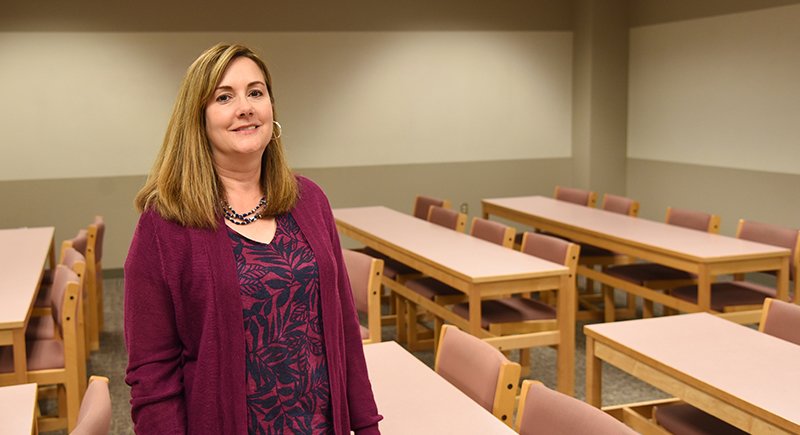
September 19, 2016 $1.5M NSF grant funds project to teach real-world math
By Maegan Murray, WSU Tri-Cities
 RICHLAND, Wash. – A Washington State University Tri-Cities professor is part of a project awarded $1.5 million from the National Science Foundation to teach mathematical modeling in elementary school as it applies to real-world cultural and community contexts.
RICHLAND, Wash. – A Washington State University Tri-Cities professor is part of a project awarded $1.5 million from the National Science Foundation to teach mathematical modeling in elementary school as it applies to real-world cultural and community contexts.
The goal is to determine strategies that teachers across the nation may use in their own classrooms.
“We are connecting math to kids’ own community and culture so they can use it to make sense of their world,” said Amy Roth McDuffie, professor of mathematics education in the College of Education. “It’s not enough that they answer a math problem. It is the whole process of problem solving that is important.”
Mathematical modeling for younger grades

Mathematical modeling – using graphs, diagrams, equations and more to predict patterns and provide solutions to real-world issues – historically has been taught in high school and college. But recent Common Core State Standards require elementary students to meet benchmarks too.
Unlike upper level mathematical modeling, such as weather predicting, students will use grade-level appropriate math tools, such as counting, multiplying, dividing and making graphs.
“One example is having students use data from a family business,” said Roth McDuffie. “With an inventory model, we can collect data on what sells, then generate formulas for how to guide purchasing in the future.”
Teachers recruited across regions
Elementary teachers recruited in the Northwest and Southwest will meet monthly to use existing research to refine established strategies and develop new ones. They will apply the strategies in their own classrooms, then revise and refine them to achieve what works best.
Throughout the process, teachers will collect data through classroom observation and tests, as well as state testing, to determine student comprehension and retention. Findings will be published so other teachers can implement the ideas.
Grant funds will support stipends for the university researchers and graduate students, elementary teachers and for compilation and review of project data.
Joining Roth McDuffie in the study are: Erin Turner, associate professor of teaching, learning and sociocultural studies at the University of Arizona; Julia Aguirre, associate professor of mathematics education at the University of Washington Tacoma; and Mary Foote, professor of mathematics education at Queens College, City University of New York.
Contacts:
Amy Roth McDuffie, WSU Tri-Cities mathematics education, 509-372-7384,mcduffie@tricity.wsu.edu
Maegan Murray, WSU Tri-Cities public relations, 509-372-7333,maegan.murray@tricity.wsu.edu





